© 2007 Prentice Hall, Business Law, sixth edition,


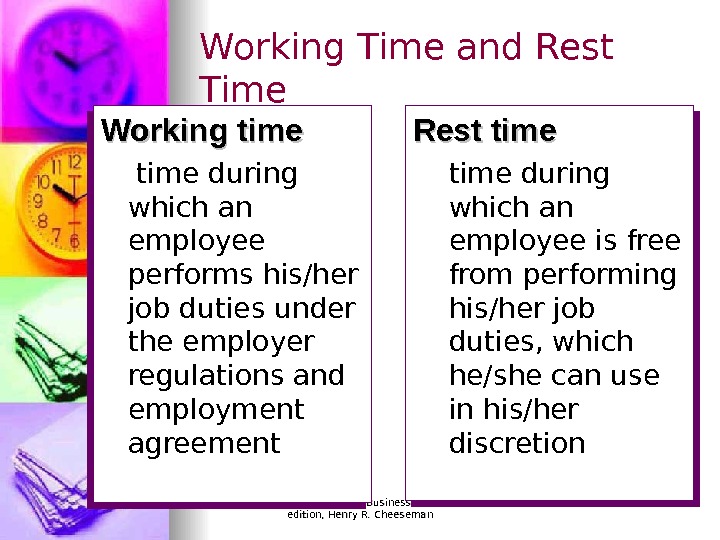
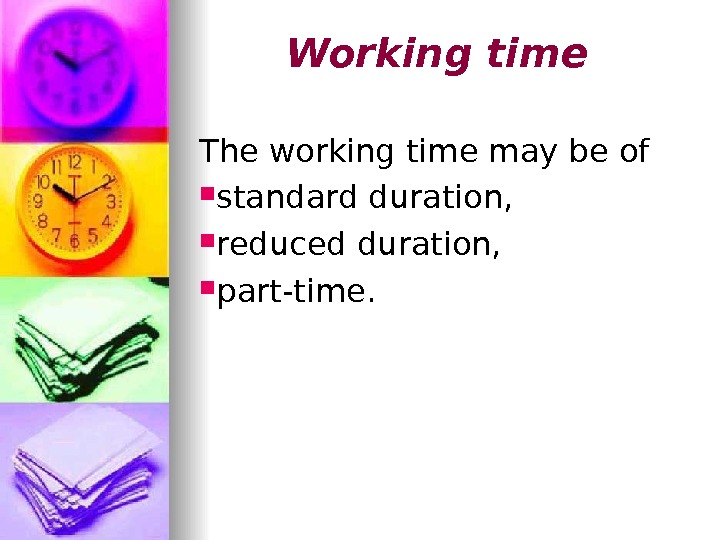
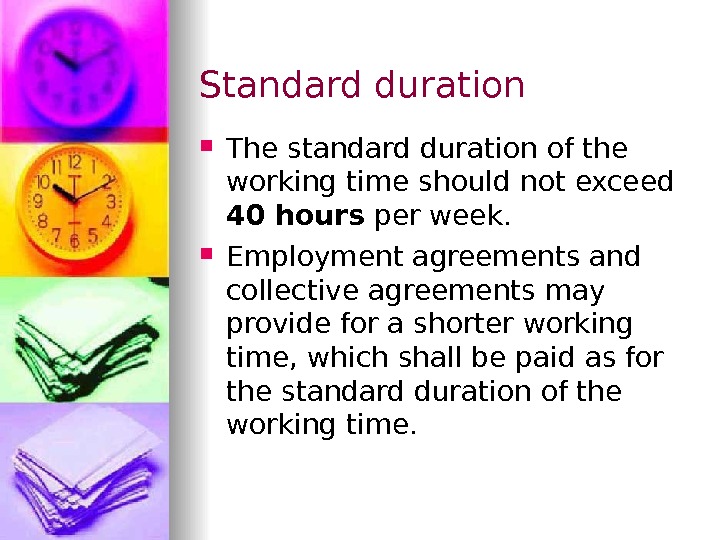
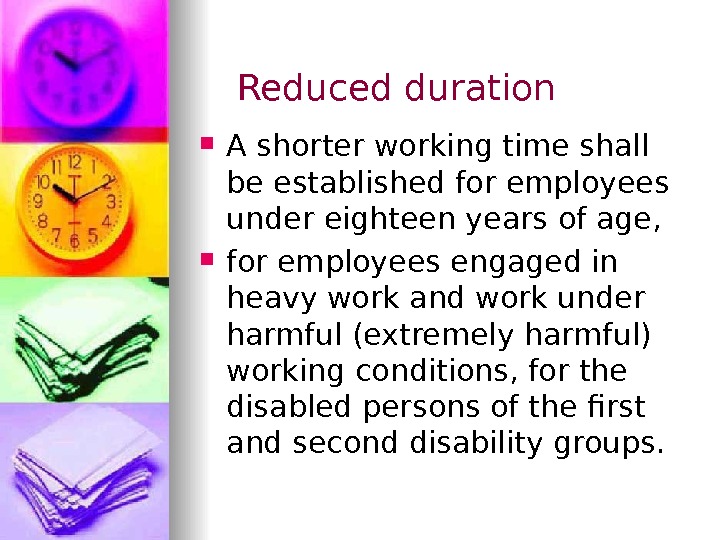
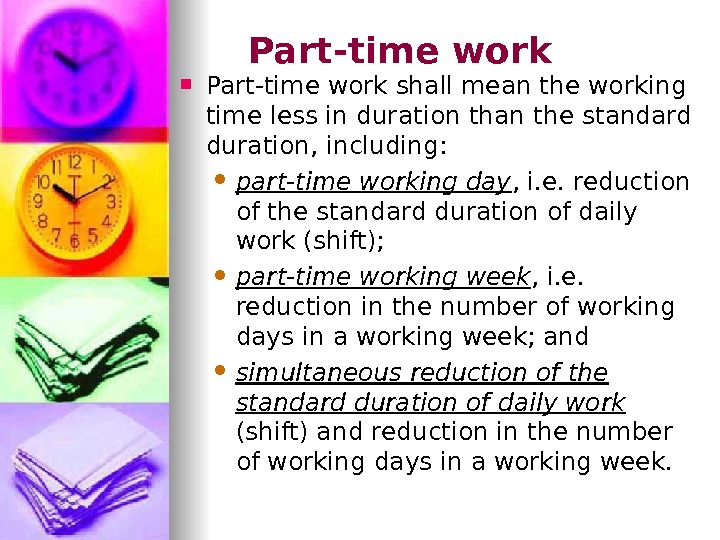
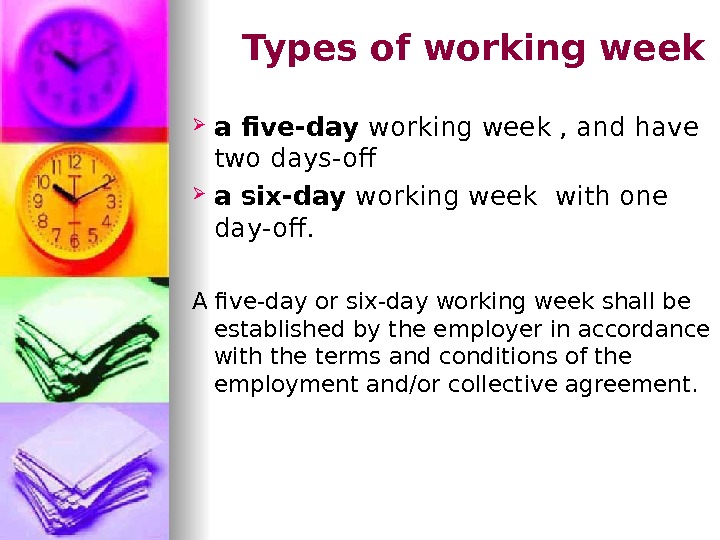

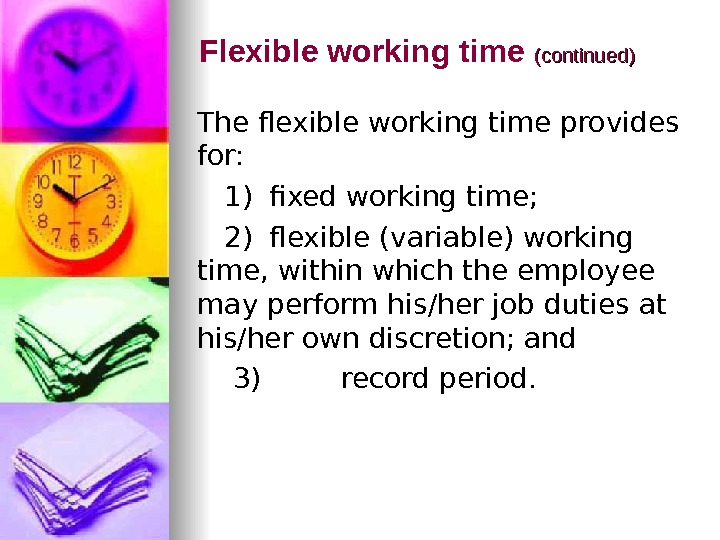
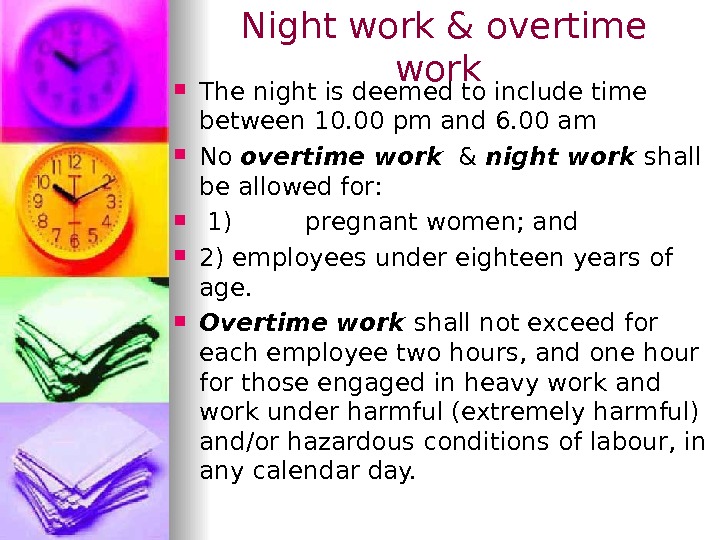
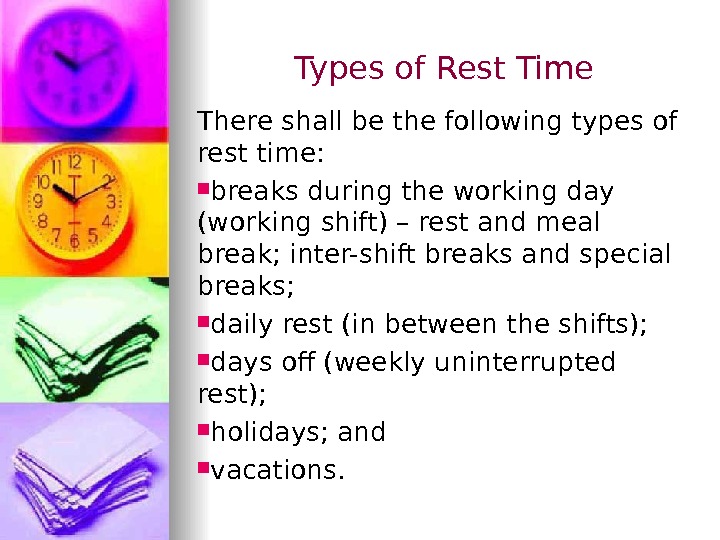
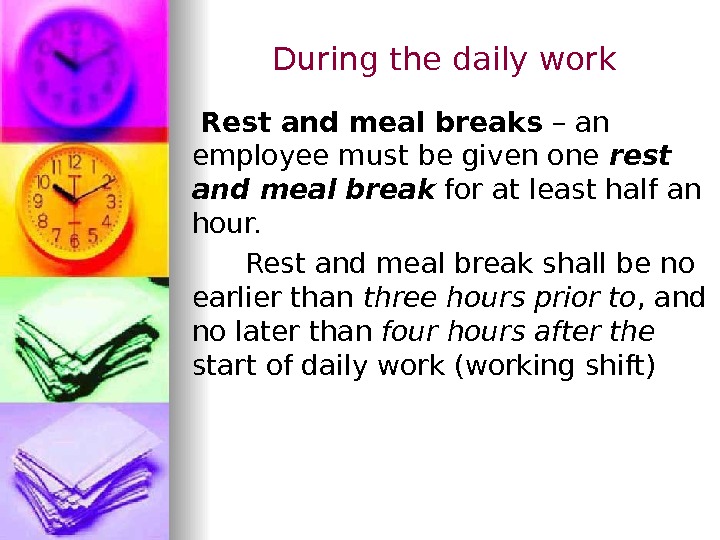
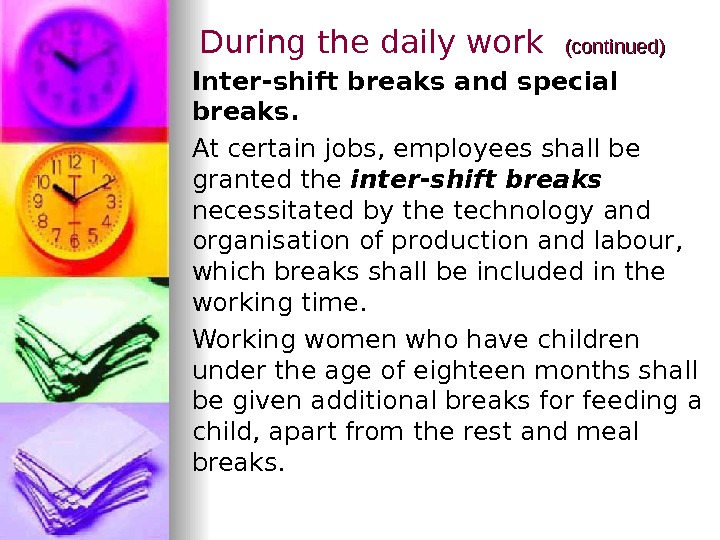
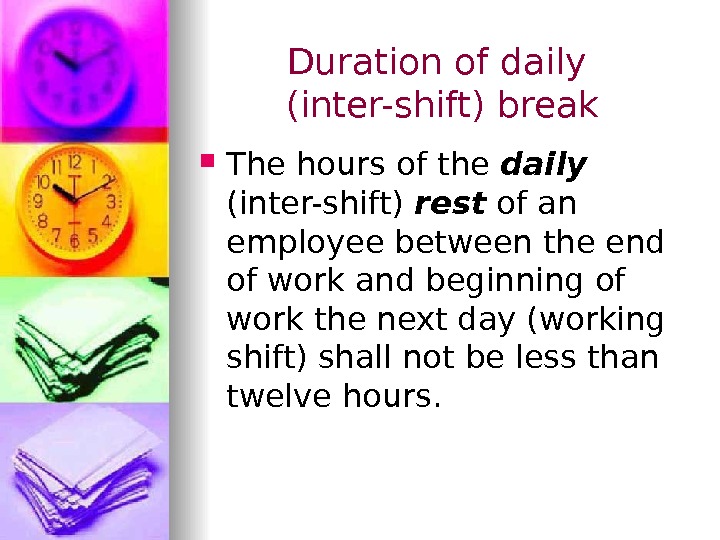
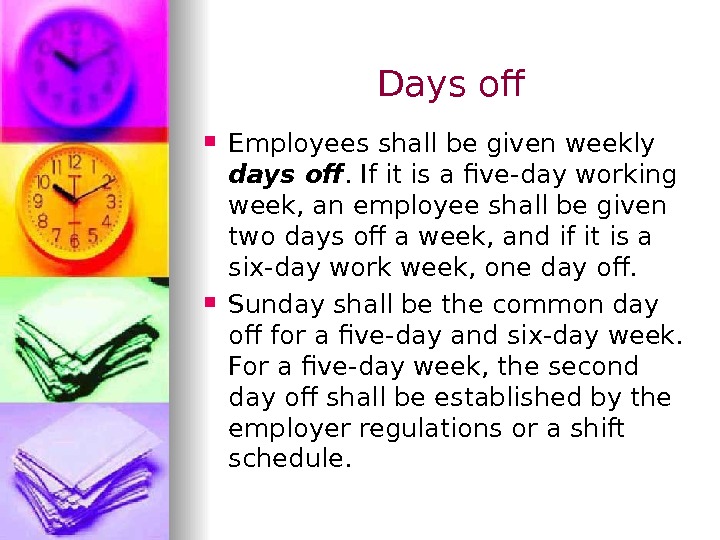
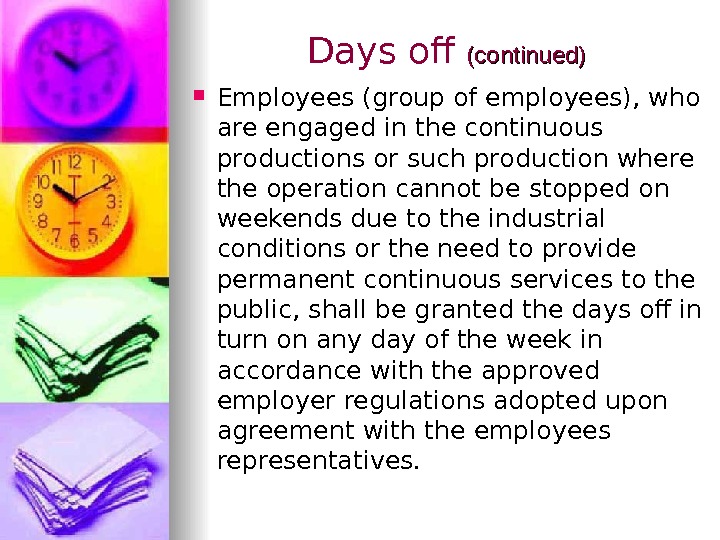
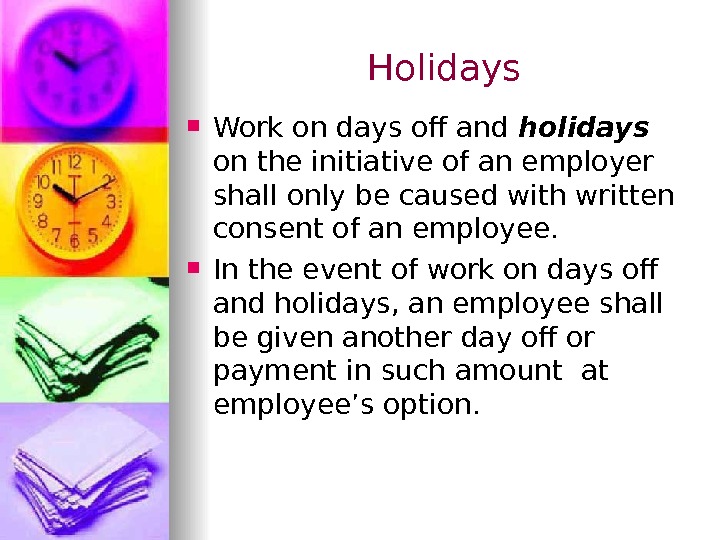
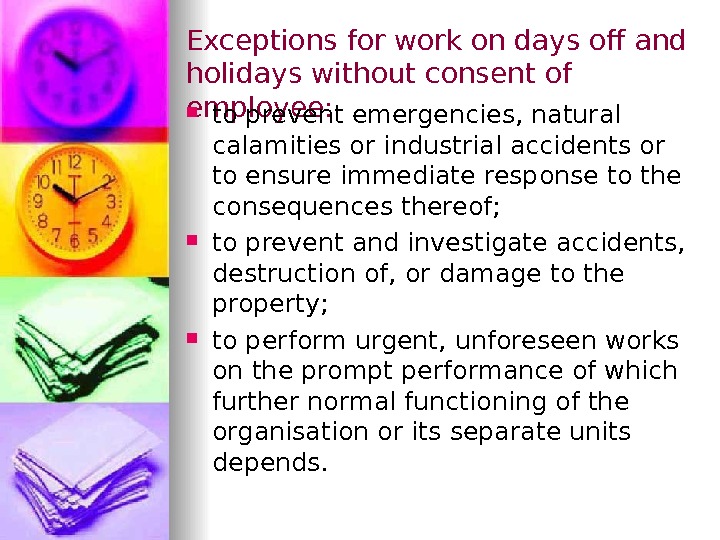
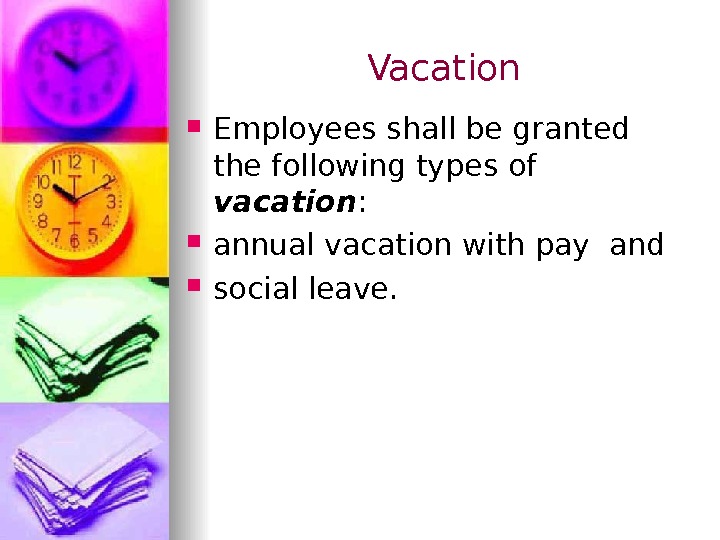
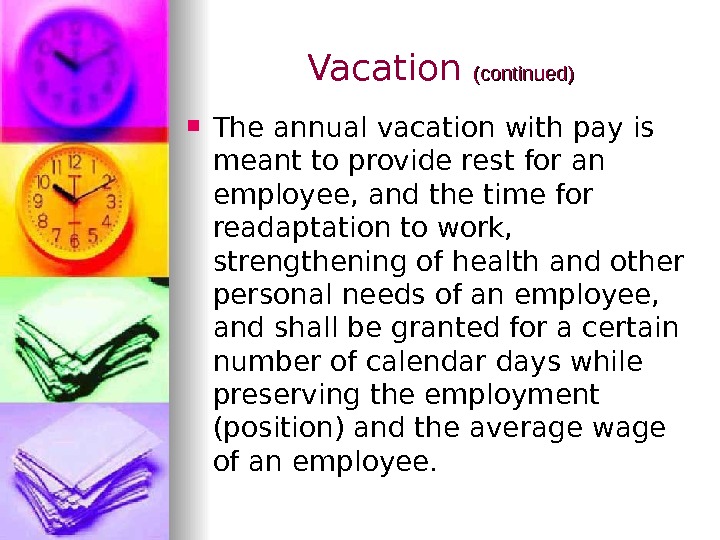
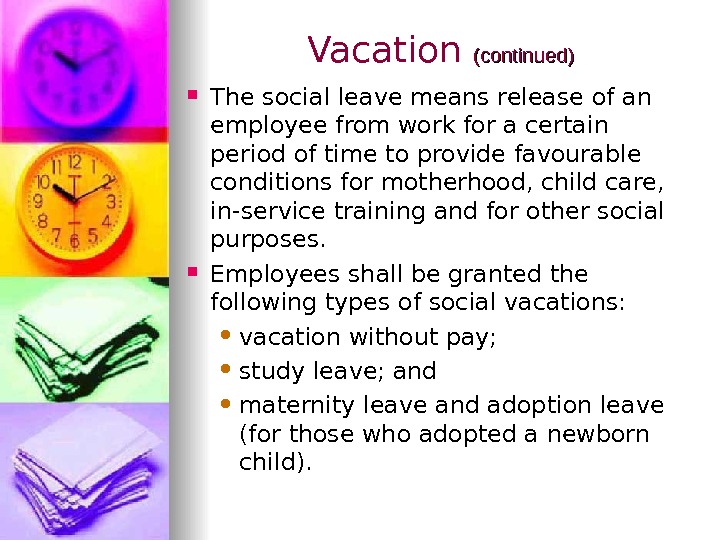
- Размер: 354.5 Кб
- Количество слайдов: 21
Описание презентации © 2007 Prentice Hall, Business Law, sixth edition, по слайдам
 © 2007 Prentice Hall, Business Law, sixth edition, Henry R. Cheeseman. Working Time and Rest Time
© 2007 Prentice Hall, Business Law, sixth edition, Henry R. Cheeseman. Working Time and Rest Time
 © 2007 Prentice Hall, Business Law, sixth edition, Henry R. Cheeseman. Working Time and Rest Time Working time during which an employee performs his/her job duties under the employer regulations and employment agreement Rest time during which an employee is free from performing his/her job duties, which he/she can use in his/her discretion
© 2007 Prentice Hall, Business Law, sixth edition, Henry R. Cheeseman. Working Time and Rest Time Working time during which an employee performs his/her job duties under the employer regulations and employment agreement Rest time during which an employee is free from performing his/her job duties, which he/she can use in his/her discretion
 Working time The working time may be of standard duration, reduced duration, part-time.
Working time The working time may be of standard duration, reduced duration, part-time.
 Standard duration The standard duration of the working time should not exceed 40 hours per week. Employment agreements and collective agreements may provide for a shorter working time, which shall be paid as for the standard duration of the working time.
Standard duration The standard duration of the working time should not exceed 40 hours per week. Employment agreements and collective agreements may provide for a shorter working time, which shall be paid as for the standard duration of the working time.
 Reduced duration A shorter working time shall be established for employees under eighteen years of age, for employees engaged in heavy work and work under harmful (extremely harmful) working conditions, for the disabled persons of the first and second disability groups.
Reduced duration A shorter working time shall be established for employees under eighteen years of age, for employees engaged in heavy work and work under harmful (extremely harmful) working conditions, for the disabled persons of the first and second disability groups.
 Part-time work shall mean the working time less in duration than the standard duration, including: part-time working day , i. e. reduction of the standard duration of daily work (shift); part-time working week , i. e. reduction in the number of working days in a working week; and simultaneous reduction of the standard duration of daily work (shift) and reduction in the number of working days in a working week.
Part-time work shall mean the working time less in duration than the standard duration, including: part-time working day , i. e. reduction of the standard duration of daily work (shift); part-time working week , i. e. reduction in the number of working days in a working week; and simultaneous reduction of the standard duration of daily work (shift) and reduction in the number of working days in a working week.
 Types of working week a five-day working week , and have two days-of a six-day working week with one day-of. A five-day or six-day working week shall be established by the employer in accordance with the terms and conditions of the employment and/or collective agreement.
Types of working week a five-day working week , and have two days-of a six-day working week with one day-of. A five-day or six-day working week shall be established by the employer in accordance with the terms and conditions of the employment and/or collective agreement.
 Flexible working time In order to combine the social and personal needs of the employees with the production needs, a flexible working time may be introduced for employees.
Flexible working time In order to combine the social and personal needs of the employees with the production needs, a flexible working time may be introduced for employees.
 Flexible working time (continued) The flexible working time provides for: 1) fixed working time; 2) flexible (variable) working time, within which the employee may perform his/her job duties at his/her own discretion; and 3) record period.
Flexible working time (continued) The flexible working time provides for: 1) fixed working time; 2) flexible (variable) working time, within which the employee may perform his/her job duties at his/her own discretion; and 3) record period.
 Night work & overtime work The night is deemed to include time between 10. 00 pm and 6. 00 am No overtime work & night work shall be allowed for: 1) pregnant women; and 2) employees under eighteen years of age. Overtime work shall not exceed for each employee two hours, and one hour for those engaged in heavy work and work under harmful (extremely harmful) and/or hazardous conditions of labour, in any calendar day.
Night work & overtime work The night is deemed to include time between 10. 00 pm and 6. 00 am No overtime work & night work shall be allowed for: 1) pregnant women; and 2) employees under eighteen years of age. Overtime work shall not exceed for each employee two hours, and one hour for those engaged in heavy work and work under harmful (extremely harmful) and/or hazardous conditions of labour, in any calendar day.
 Types of Rest Time There shall be the following types of rest time: breaks during the working day (working shift) – rest and meal break; inter-shift breaks and special breaks; daily rest (in between the shifts); days of (weekly uninterrupted rest); holidays; and vacations.
Types of Rest Time There shall be the following types of rest time: breaks during the working day (working shift) – rest and meal break; inter-shift breaks and special breaks; daily rest (in between the shifts); days of (weekly uninterrupted rest); holidays; and vacations.
 During the daily work Rest and meal breaks – an employee must be given one rest and meal break for at least half an hour. Rest and meal break shall be no earlier than three hours prior to , and no later than four hours after the start of daily work (working shift)
During the daily work Rest and meal breaks – an employee must be given one rest and meal break for at least half an hour. Rest and meal break shall be no earlier than three hours prior to , and no later than four hours after the start of daily work (working shift)
 During the daily work (continued) Inter-shift breaks and special breaks. At certain jobs, employees shall be granted the inter-shift breaks necessitated by the technology and organisation of production and labour, which breaks shall be included in the working time. Working women who have children under the age of eighteen months shall be given additional breaks for feeding a child, apart from the rest and meal breaks.
During the daily work (continued) Inter-shift breaks and special breaks. At certain jobs, employees shall be granted the inter-shift breaks necessitated by the technology and organisation of production and labour, which breaks shall be included in the working time. Working women who have children under the age of eighteen months shall be given additional breaks for feeding a child, apart from the rest and meal breaks.
 Duration of daily (inter-shift) break The hours of the daily (inter-shift) rest of an employee between the end of work and beginning of work the next day (working shift) shall not be less than twelve hours.
Duration of daily (inter-shift) break The hours of the daily (inter-shift) rest of an employee between the end of work and beginning of work the next day (working shift) shall not be less than twelve hours.
 Days of Employees shall be given weekly days of. If it is a five-day working week, an employee shall be given two days of a week, and if it is a six-day work week, one day of. Sunday shall be the common day of for a five-day and six-day week. For a five-day week, the second day of shall be established by the employer regulations or a shift schedule.
Days of Employees shall be given weekly days of. If it is a five-day working week, an employee shall be given two days of a week, and if it is a six-day work week, one day of. Sunday shall be the common day of for a five-day and six-day week. For a five-day week, the second day of shall be established by the employer regulations or a shift schedule.
 Days of (continued) Employees (group of employees), who are engaged in the continuous productions or such production where the operation cannot be stopped on weekends due to the industrial conditions or the need to provide permanent continuous services to the public, shall be granted the days of in turn on any day of the week in accordance with the approved employer regulations adopted upon agreement with the employees representatives.
Days of (continued) Employees (group of employees), who are engaged in the continuous productions or such production where the operation cannot be stopped on weekends due to the industrial conditions or the need to provide permanent continuous services to the public, shall be granted the days of in turn on any day of the week in accordance with the approved employer regulations adopted upon agreement with the employees representatives.
 Holidays Work on days of and holidays on the initiative of an employer shall only be caused with written consent of an employee. In the event of work on days of and holidays, an employee shall be given another day of or payment in such amount at employee’s option.
Holidays Work on days of and holidays on the initiative of an employer shall only be caused with written consent of an employee. In the event of work on days of and holidays, an employee shall be given another day of or payment in such amount at employee’s option.
 Exceptions for work on days of and holidays without consent of employee: to prevent emergencies, natural calamities or industrial accidents or to ensure immediate response to the consequences thereof; to prevent and investigate accidents, destruction of, or damage to the property; to perform urgent, unforeseen works on the prompt performance of which further normal functioning of the organisation or its separate units depends.
Exceptions for work on days of and holidays without consent of employee: to prevent emergencies, natural calamities or industrial accidents or to ensure immediate response to the consequences thereof; to prevent and investigate accidents, destruction of, or damage to the property; to perform urgent, unforeseen works on the prompt performance of which further normal functioning of the organisation or its separate units depends.
 Vacation Employees shall be granted the following types of vacation : annual vacation with pay and social leave.
Vacation Employees shall be granted the following types of vacation : annual vacation with pay and social leave.
 Vacation (continued) The annual vacation with pay is meant to provide rest for an employee, and the time for readaptation to work, strengthening of health and other personal needs of an employee, and shall be granted for a certain number of calendar days while preserving the employment (position) and the average wage of an employee.
Vacation (continued) The annual vacation with pay is meant to provide rest for an employee, and the time for readaptation to work, strengthening of health and other personal needs of an employee, and shall be granted for a certain number of calendar days while preserving the employment (position) and the average wage of an employee.
 Vacation (continued) The social leave means release of an employee from work for a certain period of time to provide favourable conditions for motherhood, child care, in-service training and for other social purposes. Employees shall be granted the following types of social vacations: vacation without pay; study leave; and maternity leave and adoption leave (for those who adopted a newborn child).
Vacation (continued) The social leave means release of an employee from work for a certain period of time to provide favourable conditions for motherhood, child care, in-service training and for other social purposes. Employees shall be granted the following types of social vacations: vacation without pay; study leave; and maternity leave and adoption leave (for those who adopted a newborn child).

